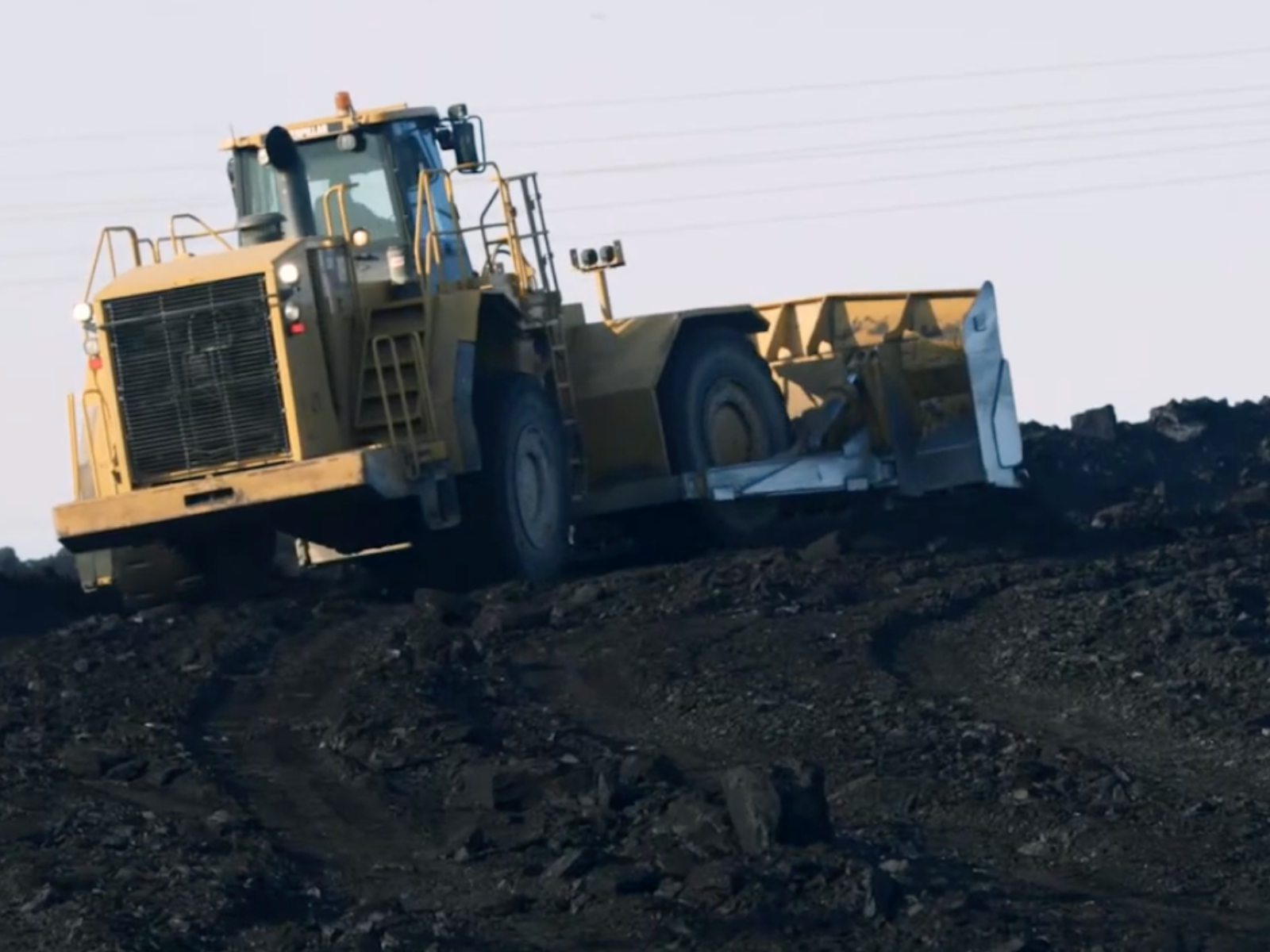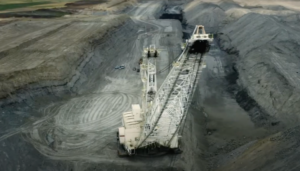
Despite being billed as an energy transition fund, investors in GIP Fund V continue to be exposed to fossil fuel investment risks
April 17, 2025
GIP claims to be focused on decarbonization and energy transition…
The private equity firm Global Infrastructure Partners (GIP), a wholly-owned subsidiary of BlackRock, repeatedly touts its focus on sustainability across its website, from decarbonization to the energy transition:
“We aspire to be one of the world’s leading owners, developers, and operators of renewable energy assets, in line with GIP’s commitment to facilitating the global energy transition. We have a team focused on decarbonization investment opportunities across our targeted sectors.”
…yet is a current and prospective investor in multiple, significant fossil fuel projects
So far, GIP Fund V’s investments have been far from environmentally-friendly. Fund V is a major investor in the Rio Grande liquefied natural gas (LNG) terminal in South Texas. The LNG facility, as it was originally proposed, was estimated to emit about 163 million tons of carbon dioxide equivalent per year, which would be on par with the emissions of 44 coal power plants every year. Perhaps even more contradictory to its claims of investing in the transition, the company building Rio Grande LNG, NextDecade, recently announced plans to expand the project’s scope from five liquefaction trains to eight, with the expectation to explore two additional trains on site. In reporting on the expansion announcement, Robert Stewart said in an Upstream article, “If all eight trains are realised, Rio Grande LNG’s capacity should swell to 48 million tonnes per annum (tpa), more than two and a half times the 18 million tpa planned for the first three trains, according to NextDecade.” Based on emission projections for the original proposal, the expanded Rio Grande LNG project would be projected to emit over 300 million tons of carbon dioxide equivalent every year, or the equivalent of the emissions from 83 coal plants annually.
In addition to significant greenhouse gas emissions, Rio Grande LNG poses risks of harmful impacts to local ecosystems, local industry, and the health of nearby residents, as well as to land sacred to the Carrizo Comecrudo Tribe of Texas. Local opposition to the project highlights the risks associated with continued construction and possible operation of the facility.
Originally, NextDecade included carbon capture and sequestration (CCS) as part of the facility’s construction in a proposed effort to mitigate emissions from the liquefaction process. Activists questioned the effectiveness of CCS as a part of the LNG project from the beginning, and Bekah Hinojosa, Brownsville artist and community organizer, called it a “Band-Aid on a bullet hole.” In August 2024, the company withdrew its CCS application with the Federal Energy Regulatory Commission, yet as of April 11, 2025 continued to promote it on its website.
Purchase of a utility company will add additional fossil fuel to the GIP/BlackRock portfolio, including a coal mine and coal power plants.
In May 2024 GIP announced its intention to purchase ALLETE. ALLETE is the parent company of five businesses, including Minnesota Power, a utility company serving 150,000 customers, Superior Water, Light & Power, a utility selling electricity, water, and natural gas in and around Superior, Wisconsin, New Energy Equity, a solar development company, ALLETE Clean Energy, which, according to the ALLETE website, ”specializes in developing, acquiring and managing clean and renewable energy projects,” and BNI Energy, which owns and operates a lignite coal mine in North Dakota. While the purchase of ALLETE would add some renewable energy to GIP’s portfolio, it would also add a coal mine, coal fired-power plants, and natural gas-fired power plants to the firm’s list of assets.


Images from YouTube video “2020 Tour of BNI Coal’s Center Mine”
In addition to the issue of ALLETE’s fossil fuel companies, BlackRock’s acquisition of GIP raised concerns from advocates following GIP’s proposed purchase of ALLETE, given the potential for conflicts of interest. Those potential conflicts of interest range from concerns about horizontal competition, with BlackRock’s extensive ownership of shares in companies that represent a majority of Minnesota Power’s industrial demand, to the conflict between affordability for ratepayers and GIP’s proposed return on this investment.
Community opposition to both investments
Community opposition to the Rio Grande LNG terminal construction and to the purchase of ALLETE and its subsidiary Minnesota Power underline risks associated with the investments in GIP Fund V.
Public opposition to the Rio Grande LNG facility is ongoing and highlights several issues with investment in this project. Violations of Indigenous rights, local government concern, emissions, wildlife habitat disruption, economic impacts, and concern regarding proximity to SpaceX have caused significant roadblocks to the project which will continue into the future. Pensioners have brought their concerns about the investment to investors. PESP and Texas community members have repeatedly articulated their concerns about the investment to the Washington State Investment Board and the Oregon Investment Council. Community members in Southern Texas continue to make their opposition to the project known. On March 26, 2025 over 50 community members protested the Brownsville mayor’s State of the City Address because of the Mayor’s support for development in the region, including Rio Grande LNG.
In Duluth, Minnesota ratepayers spoke out about their concerns regarding the sale of their utility company at a city council meeting in late March, ahead of scheduled public hearings on the deal. Those publicly opposing the sale included ratepayers, ALLETE shareholders, environmentalists, consumer advocates, and a coalition of Minnesota Power’s largest industrial customers. State officials, such as representatives from the Minnesota Department of Commerce and the administration of Governor Tim Walz spoke out against the private takeover deal. As reported in the Minnesota Star Tribune, Craig Addonizio, a public utilities analyst coordinator for the Department of Commerce, argued that taking ALLETE private comes with the risks of higher electric rates for customers due in part to high debt financing costs and would be unlikely to create public benefits.
Addonizio had reason to be concerned about high debt financing costs and GIP’s ability to manage them. The Minnesota Star Tribune reported, “Regulated public utilities recoup the costs of these purchases from their customers over the life of an asset at rates set by the PUC. As a result, GIP can earn a ‘fair and reasonable return,’ founding partner Jonathan Bram testified.” “Fair and reasonable” returns are interpreted by the Public Utility Commission and can often result in rate increases for consumers.
As noted in the article, Jonathan Bram is a founding partner in GIP, joining the firm at its start in 2006. Bram also served on the board of directors of SunPower, a large residential solar company, from 2022 to spring 2024. Bram’s oversight role in SunPower is notable because, when SunPower filed for bankruptcy in August 2024, it cited a “series of erroneous financial reports that rendered the company unable to secure new financing.”
Investors should limit exposure to risky fossil fuel assets for several reasons, including trade wars
A March 2025 report by the UK Sustainable Investment and Finance Association and Transition Risk Exeter found that total global losses from stranded fossil fuel assets could reach $2.28 trillion by 2040. Alastair Marsh wrote about the report in Bloomberg, “Oil, gas and coal reserves — as well as the infrastructure and investments underpinning fossil fuels — may “lose economic viability” before the end of their expected operational lifetimes.” While the report focuses on the United Kingdom, the United States is also exposed to stranded asset risks, with more than $500 billion at risk. The report is based on assumptions of continued energy transition, but argues that the cost of inaction would be even greater. The authors reported that “in a 2.5℃+ warming scenario, climate-related losses could reach $12.5 trillion by 2025.”
Fossil fuel investments generally, as well as investments in accompanying infrastructure, “may ‘lose economic viability’ before the end of their expected operational lifetimes” according to Bloomberg coverage of the UK report. Due to escalating tariffs, liquefied natural gas exports from the US may face particular economic challenges. Nicholas Cunningham wrote for Gas Outlook, “China’s retaliatory tariffs on U.S. LNG could ‘pause’ new deals between Chinese buyers and American LNG developers, ultimately delaying new final investment decisions on LNG projects, according to industry analysts.” As reported by Curtis Williams for Reuters, analysts at the energy consulting firm EBW Analytics told customers, “The tariffs may impact long-term contracting and offtake agreements…and make it more difficult for new US LNG projects to progress toward Final Investment Decisions.”
Uncertainty in the global market around US LNG exports could remain a long term concern. If China resells buyoff agreements to European buyers, US exports to European markets could increase, according to Gas Outlook analysis. That being said, Nicholas Cunningham continues, “The global impact may be modest, but for U.S. LNG developers hoping to get new projects off the ground, the tariffs could be painful.” The uncertainty created by escalating tariffs may also contribute to economic challenges for US LNG in the coming years. Williams reports for Reuters, “Charlie Riedl, the Executive Director of the Center for LNG, a trade group representing many U.S. LNG exporters and developers, said China’s decision to impose tariffs injects uncertainty into the industry and weakens America’s competitive position in global energy markets.”
Investors should not invest any more money with BlackRock or Global Infrastructure Partners until the Rio Grande LNG project is cancelled due to the risks it poses to investors, from unsustainable investments to problems raised by community opposition, to transnational trade wars creating economic uncertainty for the project’s investors. Additionally, investors should ask GIP and BlackRock to address concerns raised by the possible acquisition of ALLETE, including uncertainty about the effects on competition, rates, and general public interest for consumers.
